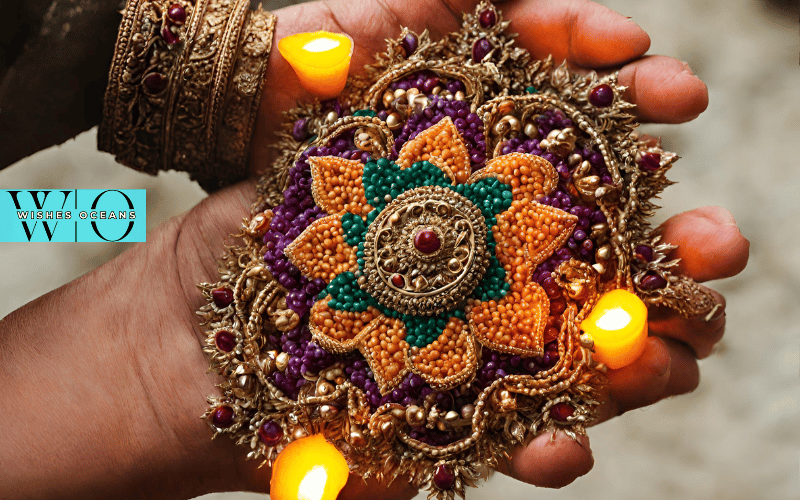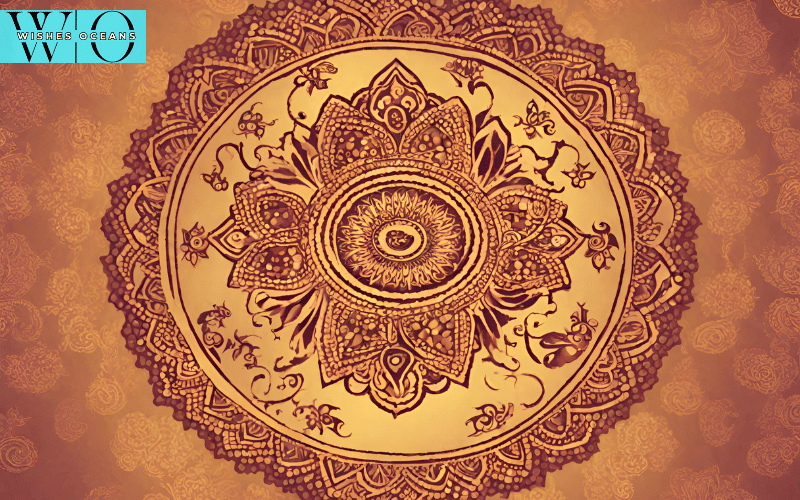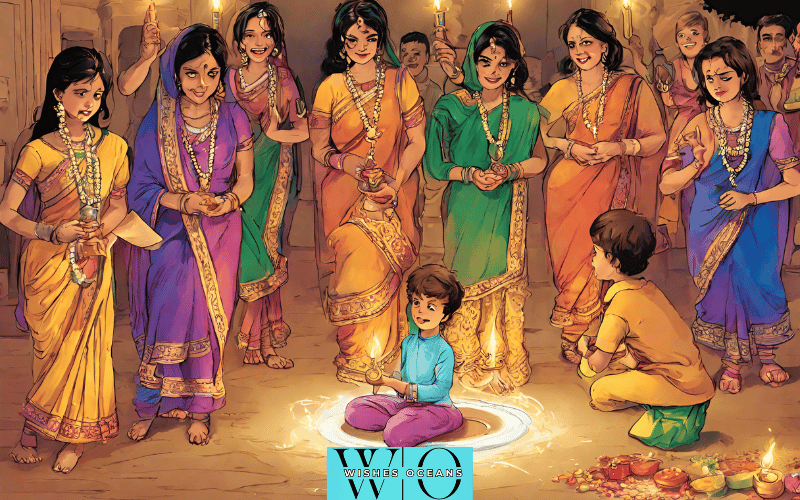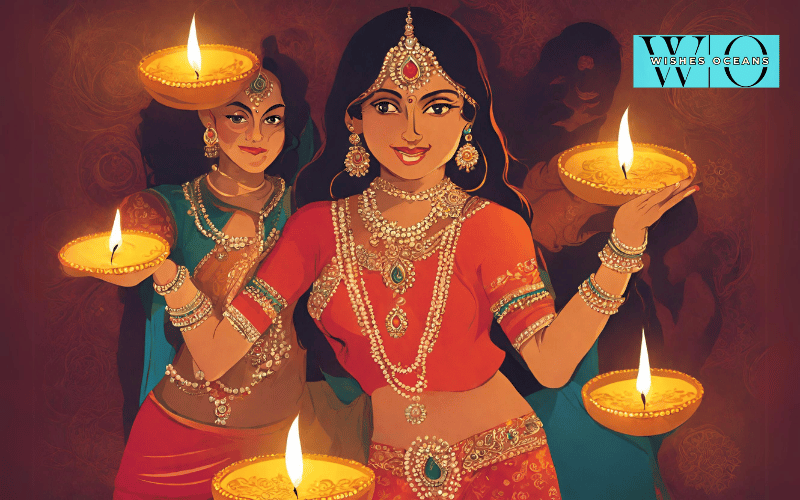Dapawali
One of the most colorful and joyful festivals is Deepavali, also known as Dapawali or Diwali. The ancient Hindu “Festival of Lights,” Diwali, honors good over evil and light over darkness. This season is for meaningful rituals and greetings to loved ones. We’ll explain Diwali, examine its diverse ethnic traditions, and close with ten emotional greetings that express Dapawali fully.
Table of Content
An Examination of Dapawali or Diwali’s Significance
the Sanskrit literal meaning of “a line of lamps” Sikhs, Hindus, Jains, and Buddhists are just a handful of the religions that observe Diwali. People from different origins and faiths can come together to celebrate. The following reasons make the occasion important:
1. The Triumph of Light over Darkness:
Fundamentally, Diwali commemorates the triumph of light over darkness. It is significant to ignite lamps and candles to symbolize the removal of ignorance and evil from our life.

2. Hindu Mythological Significance:
Hindu mythology celebrates a number of significant events on Diwali. It symbolizes Lord Rama’s return to Ayodhya following his triumph over Ravana, the king of the demons. It is also connected to the myth of Lord Krishna vanquishing Narakasura.
3. Welcoming the Goddess Lakshmi:
One of the main traditions of Diwali is the worship of Goddess Lakshmi, the Hindu goddess of prosperity and fortune. Devotees ask Goddess Lakshmi to bring prosperity and good fortune into their homes.
4. A Time for Family and Community:
Families should gather together to celebrate Diwali and deepen their ties. In addition, it’s a time for social gatherings and community events where people exchange presents, candies, and hospitality.
Part II: The Five Days of Diwali
Diwali is a five-day holiday with distinct meanings for each day, rather than a single celebration. Dhanteras is the first day of the festival, while Bhai Dooj is the last. This is a quick synopsis of the five days:
1. Dhanteras: The first day, Dhanatrayodashi, is devoted to worshiping the wealth-treasurer Lord Kubera and the Ayurvedic deity Lord Dhanvantari. Purchases of gold, silver, or kitchenware are made as a sign of prosperity.

2. Naraka Chaturdashi: Choti Diwali, also known as Naraka Chaturdashi, falls on the second day. It honors the day that Lord Krishna vanquished the demon Narakasura. To detoxify oneself, people take an oil bath before sunrise.
3. Diwali: The major day of Diwali, known as the festival of lights, falls on the third day. People decorate their homes with vibrant rangoli patterns and light oil lamps and candles. This day represents the triumph of virtue and light.
4. Govardhan Puja: The fourth day, which is also referred to as Annakut or Padwa, honors Lord Krishna for raising Govardhan Hill to shield the residents of Vrindavan from the fury of Lord Indra. On this day, people prepare a wide range of culinary items.
5. Bhai Dooj: The link between brothers and sisters is celebrated on the fifth and final day. Brothers present gifts to their sisters after sisters place a tilak on their foreheads and wish them well.
Part III: The Luminous Traditions of Diwali
There are several centuries-old customs and traditions associated with Diwali. The following customs are important in creating an amazing festival experience:
1. Lighting of Lamps and Candles:
Getting the lights and candles lit is one of the most recognizable Diwali customs. Homes are surrounded by rows of burning diyas, or clay lamps, which represent the victory of light over darkness.

2. Rangoli Art:
People use rice, colorful powders, or flower petals to make elaborate rangoli creations just outside their homes. Rangoli is a decorative element that also represents welcoming guests.
3. Bursting Firecrackers:
Firecrackers are still a popular Diwali custom, despite controversies over their noise and pollution. Crackers represent joy, and fireworks are thought to fend off evil spirits.
4. Exchanging Gifts:
During Diwali, exchanging gifts is a custom that represents friendship and affection. As a sign of love, families and friends trade gifts, candies, and dry fruits.
5. Cleaning and Decoration:
In order to welcome Goddess Lakshmi, dwellings are meticulously cleaned and decorated before Diwali. The intention is to welcome the goddess into a tidy and lovely setting.
Part IV: Ten Heartfelt Wishes for Diwali or Dapawali
It’s customary to send warm greetings to loved ones on Diwali. Ten warm wishes that capture the essence of the Festival of Lights are listed below:
1. May the Diwali Light Fill Your Life with Joy and Prosperity: Allow the Diwali light to brighten your path and guide you toward success and happiness.

2. I’m wishing you a happy and blessed Diwali, hoping that this celebration may fill your life and your house with blessings, love, and wealth.
3. As you light the lamps, may they drive ignorance and negativity out of your heart and house. May the Festival of Lights Remove Darkness from Your Life.
4. Diwali Is a Time for Family and Friends: I hope you make enduring memories and treasure these fleeting times with your loved ones.
5. I hope you have an abundant and prosperous year. May Goddess Lakshmi bestow success and fortune onto your home in the upcoming year.
6. May Your Life Be as Colorful as the Rangoli: May happiness, love, and prosperity beautify your life, just as a rangoli illuminates your entryway.
7. Diwali is a Time for New Beginnings: Celebrate the new experiences and chances that Diwali offers while letting go of the past.
8. Sending You Love, Peace, and Happiness: May love fill your heart, peace fill your soul, and happiness fill your life.
9. Diwali Is a Time for Reconciliation and Forgiveness: Make amends with people you may have wronged, restore your bonds with them, and let forgiveness to rule.
10. Let the Diwali Blessings Light Up Your Future: As you rejoice at this occasion, may the future be filled with hope and prosperity.
Conclusion
The Festival of Lights, Dapawali, Diwali, is a time for happiness, harmony, and the victory of light over darkness. During this lovely occasion, it’s not just about following customs and rituals; it’s also about sending our loved ones sincere well wishes. These wishes capture the spirit of Diwali, bringing joy and love into people’s lives and welcoming a fresh year full of promise and wealth. Dapawali or Diwali is a reminder that, in spite of our differences, ignorance can never triumph over the light of love and kindness.
